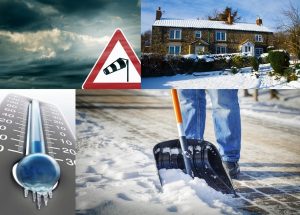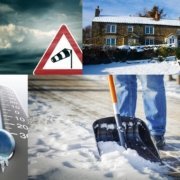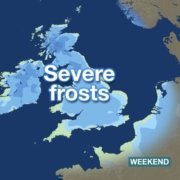Essential low season holiday home winter maintenance tips
Last Updated on October 1, 2020 by admin
 These essential holiday home winter maintenance tips should help you survive the low season claim free. This time of year is an interesting one for many holiday homeowners; whilst there’s been a trend towards an increase in bookings during the first few months of each year, for many this will still be the lowest period of occupancy and at a time when the great British weather can be at its most unforgiving.
These essential holiday home winter maintenance tips should help you survive the low season claim free. This time of year is an interesting one for many holiday homeowners; whilst there’s been a trend towards an increase in bookings during the first few months of each year, for many this will still be the lowest period of occupancy and at a time when the great British weather can be at its most unforgiving.
Although it may seem a good time to lock the cottage door, shut everything down for a few months and get some well-earned rest, there are still a few things you’ll need to be doing in order to make sure your holiday home is in tip top condition for when your guests begin to arrive in their droves once more.
Here’s a timely reminder of what you should and need to be doing at this time of year, congratulations if you’re already on top of them all.
Getting your holiday home ready for significant weather
Step one when it comes to winter maintenance; make sure that the property is fit to withstand winter weather. Wind, rain, and even snow can cause real damage to properties so some quick visual checks can make sure that your property stands in good stead to fight them off.
One of the most common causes of damage is loose roof slates; how are yours looking? Have a qualified roofer carry out any maintenance that may be required.
Another is the blockage of drains and downpipes causing water to collect in large volumes; when was the last time yours were checked and cleaned? Remember leaves, a key culprit when it comes to blockages, have been falling for a number of months now.
Trees, hedges and gardens also need a prune to stop any large branches becoming flying objects that can do damage to not only your own cottage, but those living or parked nearby.
Avoiding frozen pipes
As insurers we know there’s nothing like Jack Frost when it comes to claims and damage to properties; your heating shouldn’t be turned off at this period. Ensure that it’s set to a minimum temperature throughout your holiday home to prevent pipes from freezing. If you able to do so also ensure the water is turned off to minimise the chances of water escaping through pipes bursting or failed plumbing. If you’re unable to leave the heating on then all water systems should be drained after turning off the supply at the stop cock.
Opportunist thieves
Low visitor numbers mean plenty of unoccupied properties and therefore for potential targets for those looking to take advantage. If you do have sporadic visitors during this period, then make sure that you use something such as a key safe and that the code for this safe is changed on a regular basis.
If you live some distance from your holiday home, have someone check the property on a regular basis. Regular visits can minimise the chances of a break in. As can ensuring that all doors and windows are locked once guests have departed.
Complying with policy conditions
Insurance policy conditions aren’t there to get insurers out of a claim or to be overly officious. They’re there to help you minimise the risks to your property.
Being aware of the conditions in your policy will ensure that you know you’re adhering to everything you need to. If you make a claim, you’ll be confident that you have taken due care of your property. In doing so you’ll also be minimising the risks to your holiday cottage and guests. We are always upfront and clear about our policy conditions but just incase you need reminding, click below to reveal them:
- Do I have to regularly inspect my holiday home?
- Do I have to turn off the utilities to my holiday home during the winter?
Boshers offer specialist holiday home insurance to owners across the UK. We’re here to help and support you as a holiday homeowner. If you require advice or an insurance quote please give us a call on 01237 429444.









Leave a Reply
Want to join the discussion?Feel free to contribute!